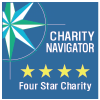BOISE, Idaho – The first California Condor chicks of the season began hatching this week at the World Center for Birds of Prey, home to the world’s largest captive flock. The first one Tuesday was followed by two more on Wednesday.
Since February, 17 adult pairs have produced 21 eggs in the captive flock. The breeding program is expected to produce up to 20 young birds for release to the wild in Arizona, California, and Baja Mexico.
“This is our busiest time of the year as the eggs all begin to hatch,” said Marti Jenkins, who oversees The Peregrine Fund’s condor propagation program. “It’s also very exciting because it means we have another group of birds that will enable us to one day remove condors from the Endangered Species List.”
Two weeks after the eggs were laid, the fertile ones were artificially incubated until right before hatching begins. The egg is then returned to its parents who watch over it as the chick chips its way out of the shell.
“Every egg and chick is precious when you are dealing with an endangered species, so we don’t want to take any chances that something will happen to the egg during the two-month incubation period,” Jenkins said.
Chicks are nurtured by their parents for about a year before they can be released to the wild. The Peregrine Fund’s release site is located at Vermilion Cliffs National Monument near the Grand Canyon. After the birds are released, the field staff monitors their movements with satellite tracking equipment and comes to their aid if the birds are sick, injured or exhibiting behaviors that present a danger from predators or people.
Currently, the total population of critically endangered California Condors numbers 414. Of those, 232 are flying free in the wild. The Peregrine Fund manages 72 condors in the Arizona-Utah flock.
The Peregrine Fund began raising condors at the World Center for Birds of Prey in 1993, then releasing them to the wild in 1996.
For more information, contact:
Erin Katzner
Director of Global Engagement
Main Phone: 208-362-3716
Direct Phone: 208-362-8277





